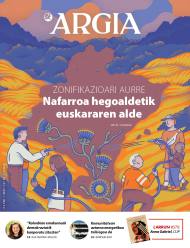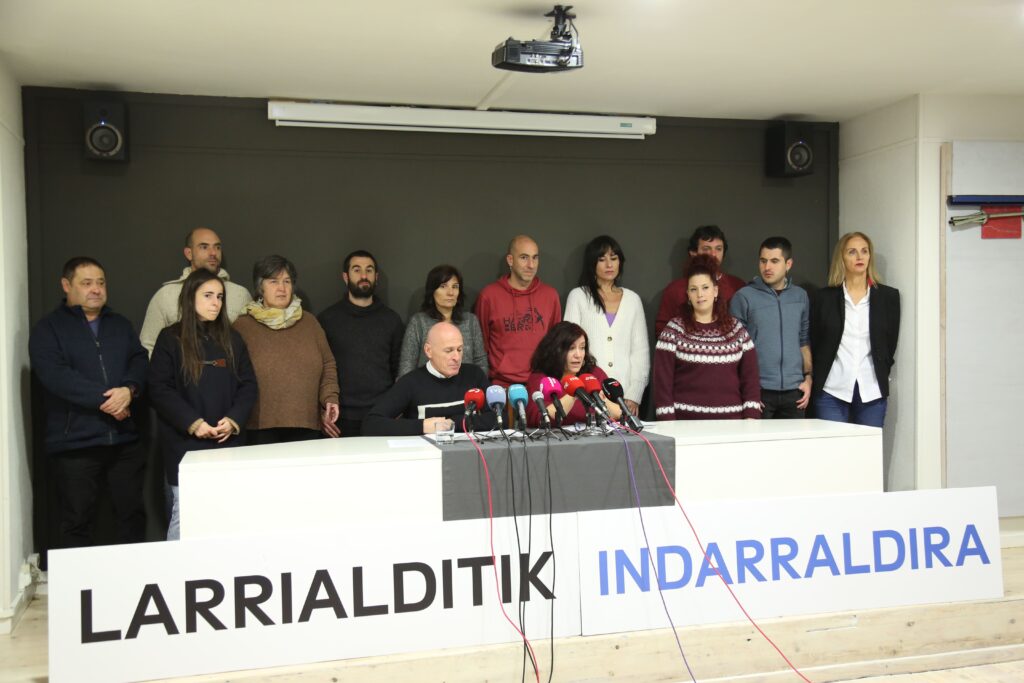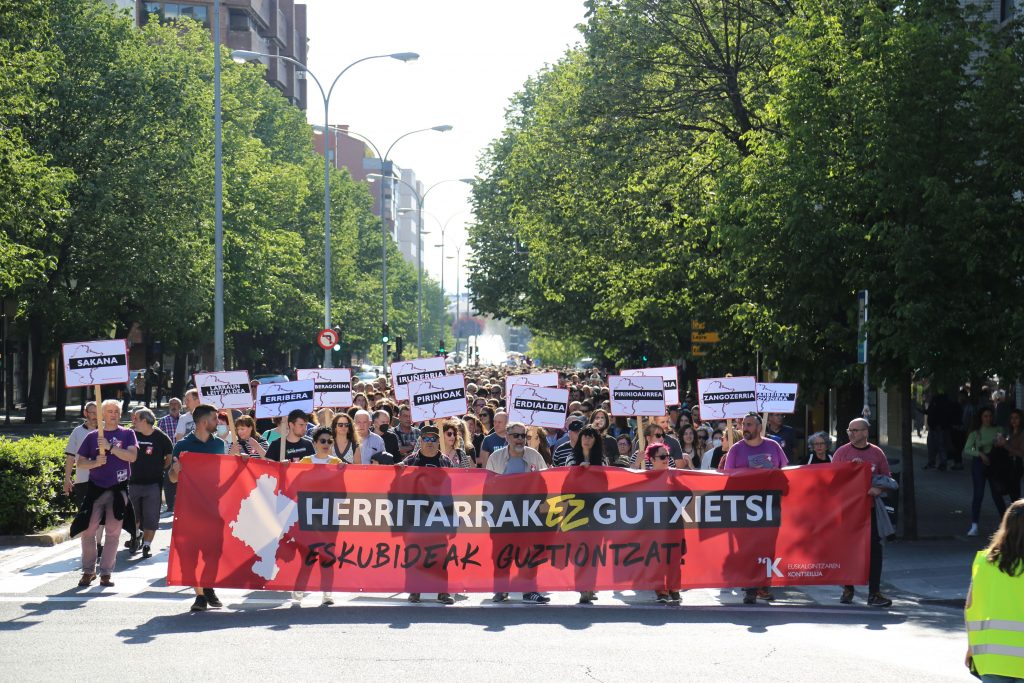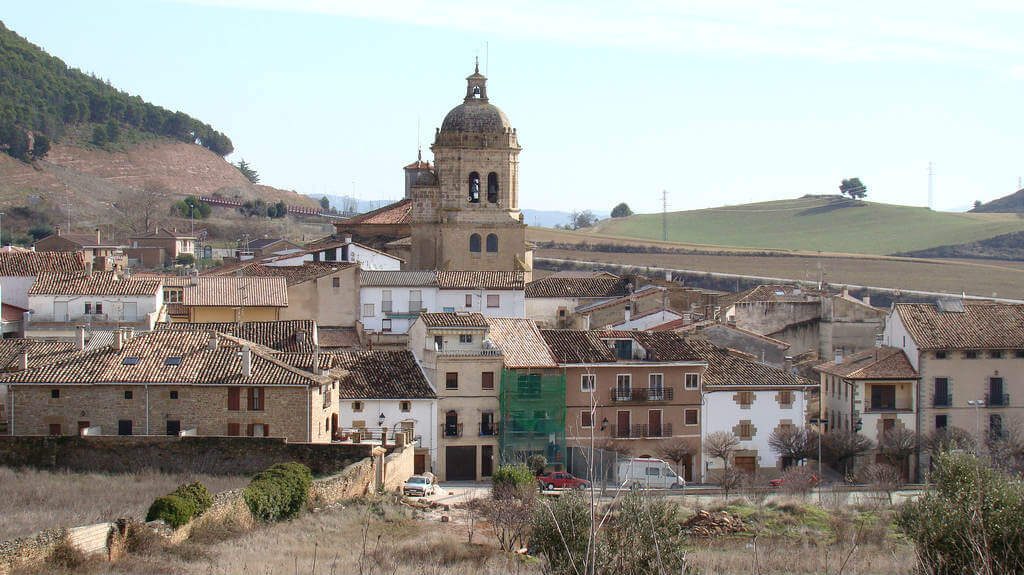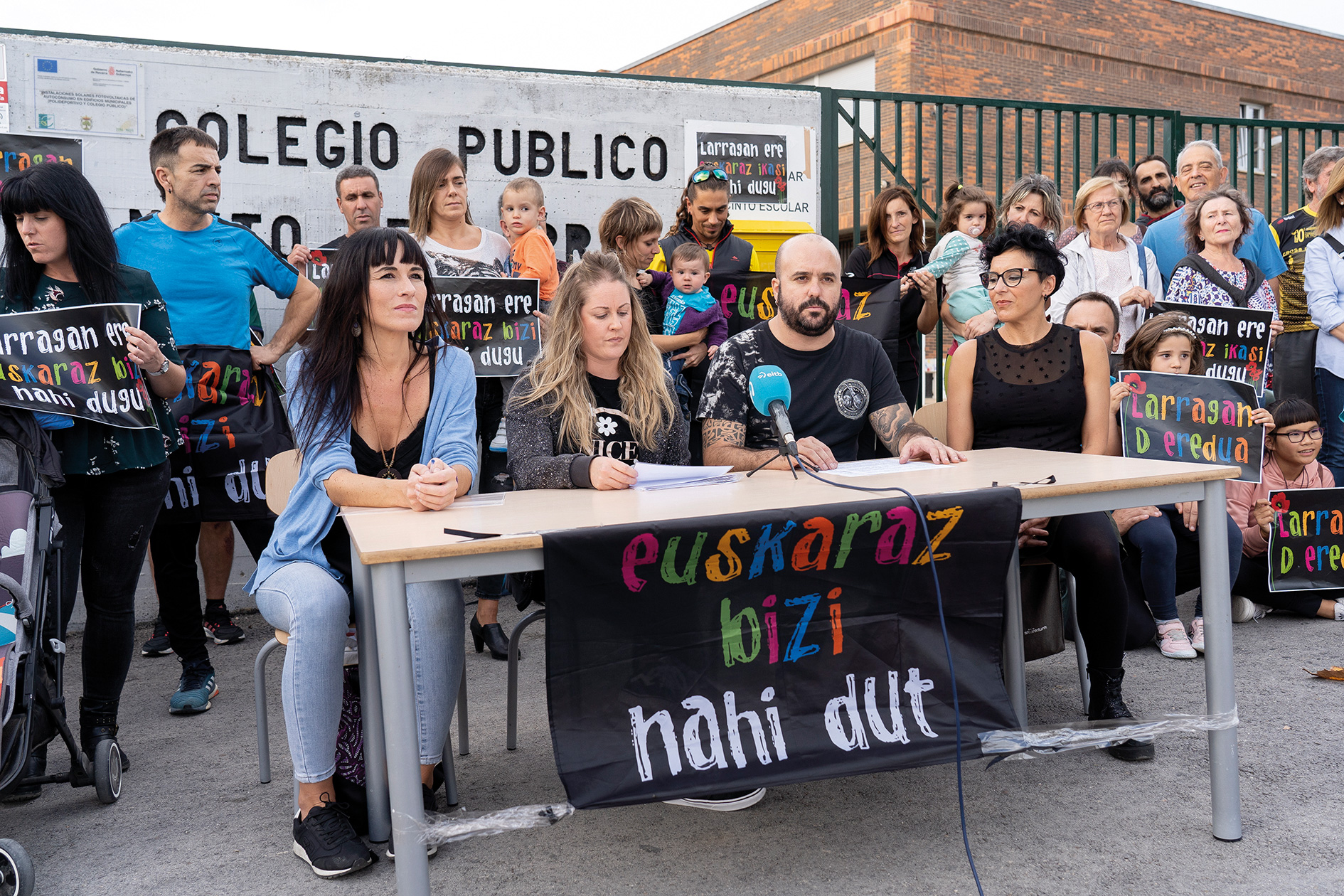From the south of Navarra the new impulse for the Basque Country was born
- The Basque Foral Law discriminates against Navarros and they are granted linguistic rights depending on their area of residence. Well, a few years ago, many initiatives began to be taken to combat zoning, and this fall has become stronger than ever for the Basque country. We have talked to the members of Hordago, Errigora and Ageraldia about the new harvest for the Basque country.
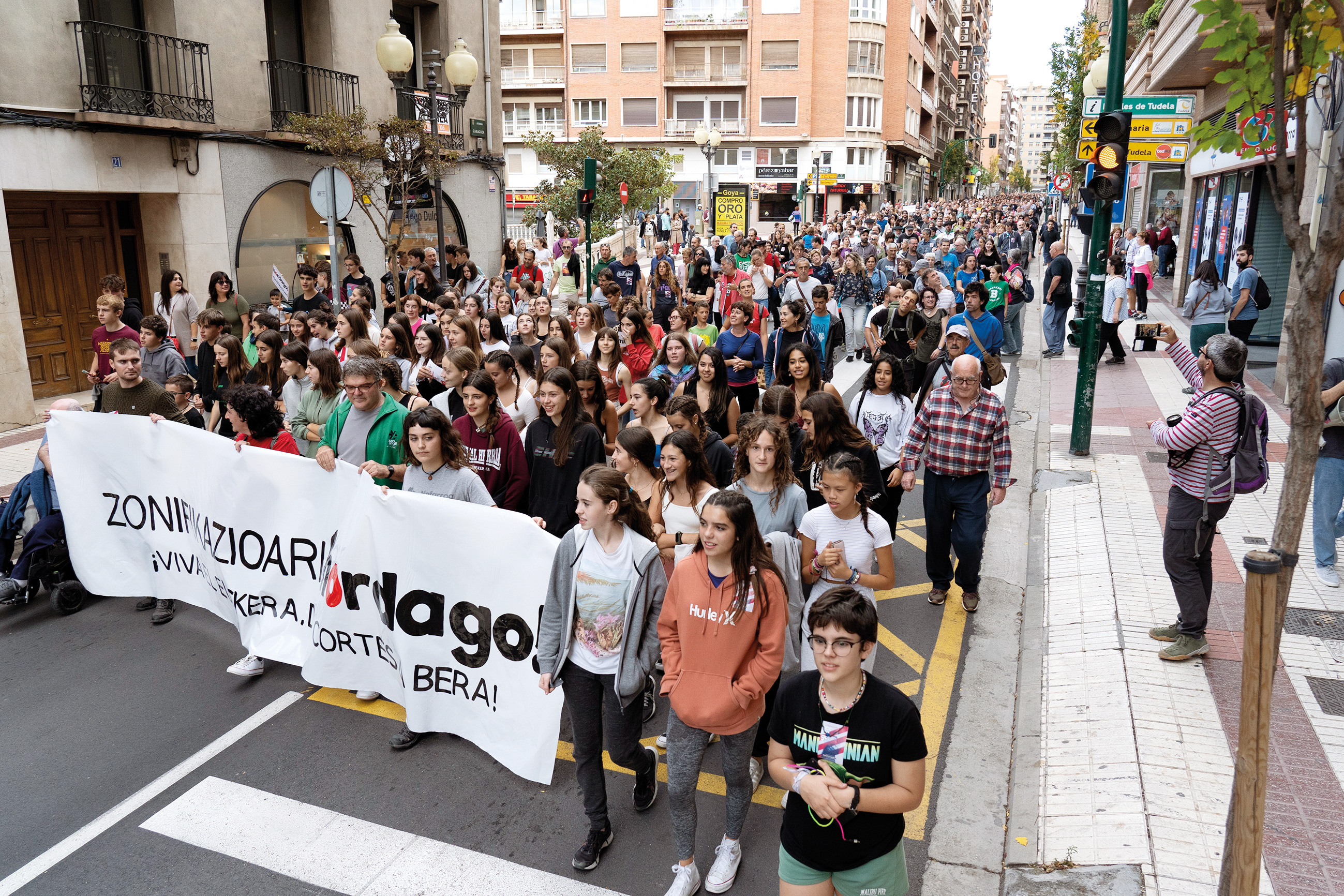
"The public authorities shall take the necessary measures to ensure that the language is not discriminatory". Article 3.1 of the Ley Foral del Euskera de Navarra regulates this, but the reality is very different. The “Law of the Vascuence”, approved by the Parliament of Navarra in 1986, discriminates against Navarros by allocating or denying rights depending on the area in which they reside. It divides Navarra into three areas: vascophony, mixed and non-vascophony.
As a result of this zoning, a citizen living in Irurtzun – the Vascophony area – is granted rights, but if he goes to Pamplona – a mixed area – a mere 20 minutes he loses those rights; if he moves to Noáin – a non-Vascophony area – a further 10 minutes he has fewer rights. The Basques and Vascophiles of Navarre are clear: zoning causes segregation and violates the rights of citizens.
The Basque Law is not a new issue. Attempts have been made on several occasions for the Navarre Parliament to remove the law and this effort was mainly put at the forefront of the Government of Change [mandate 2015-2019]. It has not been eliminated, but the law has undergone some adaptations, the last in 2017, in which some municipalities moved from the non-vascophony zone to the mixed zone, at the majority request of the population. Currently there are 64 municipalities in the vascophony zone, 98 in the mixed zone and 110 in the non-vascophony zone. The most discriminated is the so-called South or Ager area, while the one that has been mobilized for some time to combat zoning.

The Hordago popular initiative was presented in November 2021 with the declaration of Cortes and has since called for justice: “Do you imagine the zoning of labor, educational or health rights in Navarra? The zoning with a theme of this kind, which would be unacceptable to any Navarre progressive, did so with the Basque country and the linguistic rights of the Navarros”, they warn. During the last four decades, the Navarros have made numerous demands and fights to defend the right to live in Basque above the Basque Law. The forces are gradually joining and articulating, and the harvest that is starting to be sown in the Ribera is spreading to all areas. This autumn many activities have been organized to moisten the dry lands in Basque in the Ager area.
Hordago, handira
On 22 October Tudela was the meeting point of the Basque Country, and Errigorak, the Hearing and Hordago organized a full day programme. In the morning they worked in Ablitas with the harvest of Navarros producers in the baskets of Errigora, and the organizers stressed that “more neighbours have gathered than ever” and thus began the autumn campaign. In the afternoon they have taken the streets of the capital bank in the demonstration called by Hordago. The new Tudela square is the starting point for the influx of people, both local and close to the Zoning. Bera Gortearen euskara bizi! under the slogan. They have claimed the linguistic rights of all Navarros and have demanded the Government of Navarre to remove the exclusionary Basque Law. In addition to individuals, various social actors, political groups and trade unions have supported the demonstration.
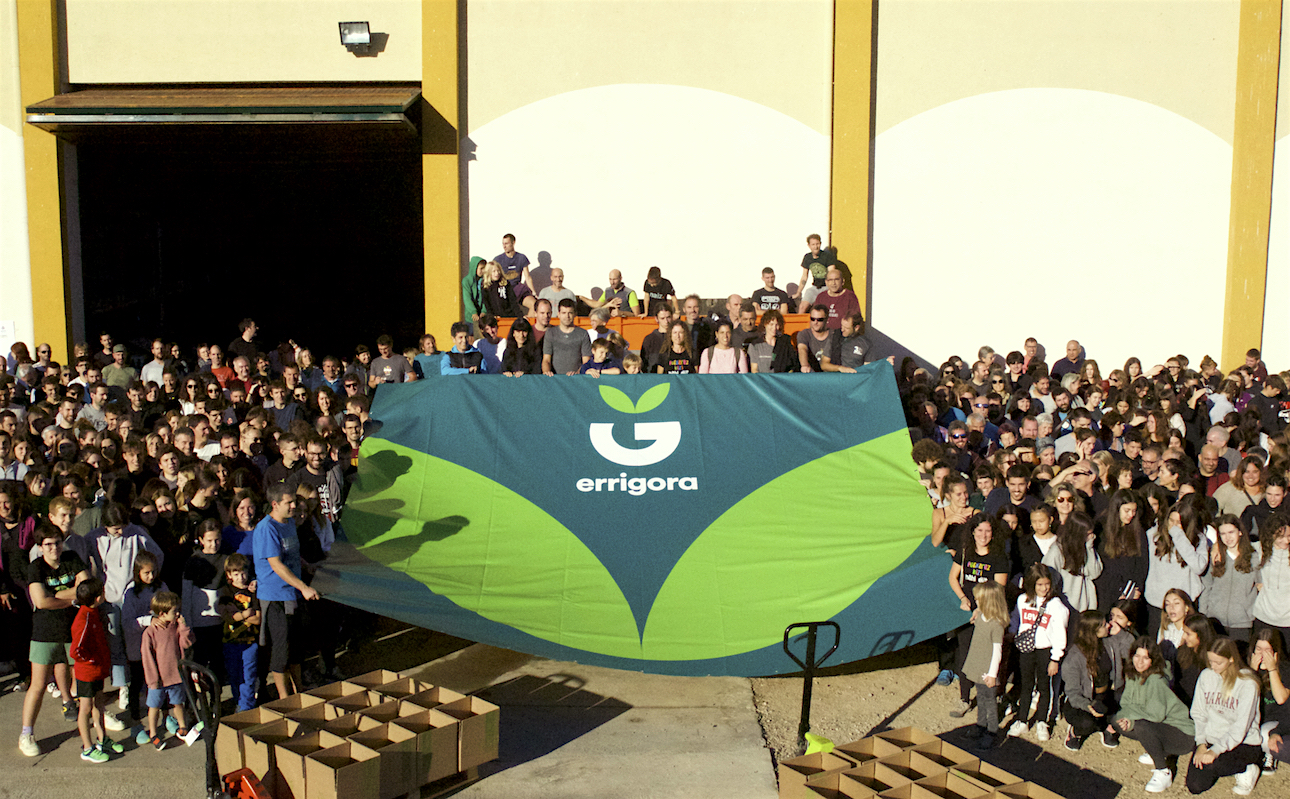
However, they have not been able to complete the day at their will: They had to delay the concert organized by the hearing, due to the difficulties imposed by the Town Hall of Tudela. The organizers of the hearing denounce that with the discomfort of the City Hall there were no conditions for “a multitudinous, joyful and participative concert”. “Offended but not regretted this,” they announced that the concert will be for the spring, “launched on the initiative of the Euskaltzales and open to all those who have no Basque phobia.” They have spent six months trying to obtain the licenses with the municipal government of Navarra Suma, but it has not paid off. We must remember the controversial press statements of Mayor Alejandro Toquero in November 2021: “Nobody here speaks Basque, it has never been spoken.”
On October 22, Iraia De la Torre, Hordago’s colleague, explained that they have tried to leave these types of attitudes behind and “make community”. De la Torre es de Azagra, and stresses that it is not usual to have demonstrations in the Ribera, so it has been multitudinous and successful; beyond ideologies, it clarifies that Hordago is a plural group that defends rights. Tudela has been defined as a turning point both for those who are part of the initiative and for the rest of the citizens: they have managed to see that the Basques and Vascophiles are present and increasingly present in the Ager area; and those who have so far had a passive attitude towards the Basque people have approached the issue and made them think about it, according to De la Torre.
For Basque in Spanish
In short, they want to mobilize discriminated people and put social pressure on the institutions to make the Basque Country official throughout Navarra. They want that call from the bottom to the top, “from the hardest areas to the top,” says Ibai Sueskun Errigora member and Hordago member: “Here is a reality, there are vasophiles but it costs more to be Basque. So let's break with those cracks, it's time to put them together. It is time to break the zoning, to unite citizens, to map and to join forces”.
Sueskeak has recognized that they also joked because the motto is Spanish, but explains Blanca García, a tutelary member of the Appearance and Hordago: “We have made self-criticism of putting our messages in Spanish too. There are vasophils who do not know Euskera and who could participate in many activities. In order to advance the normalization of the Basque Country, it is necessary to promote favorable attitudes, Castilian has to have a presence in the Ribera, otherwise we would limit very much to our public and not achieve the objectives”.
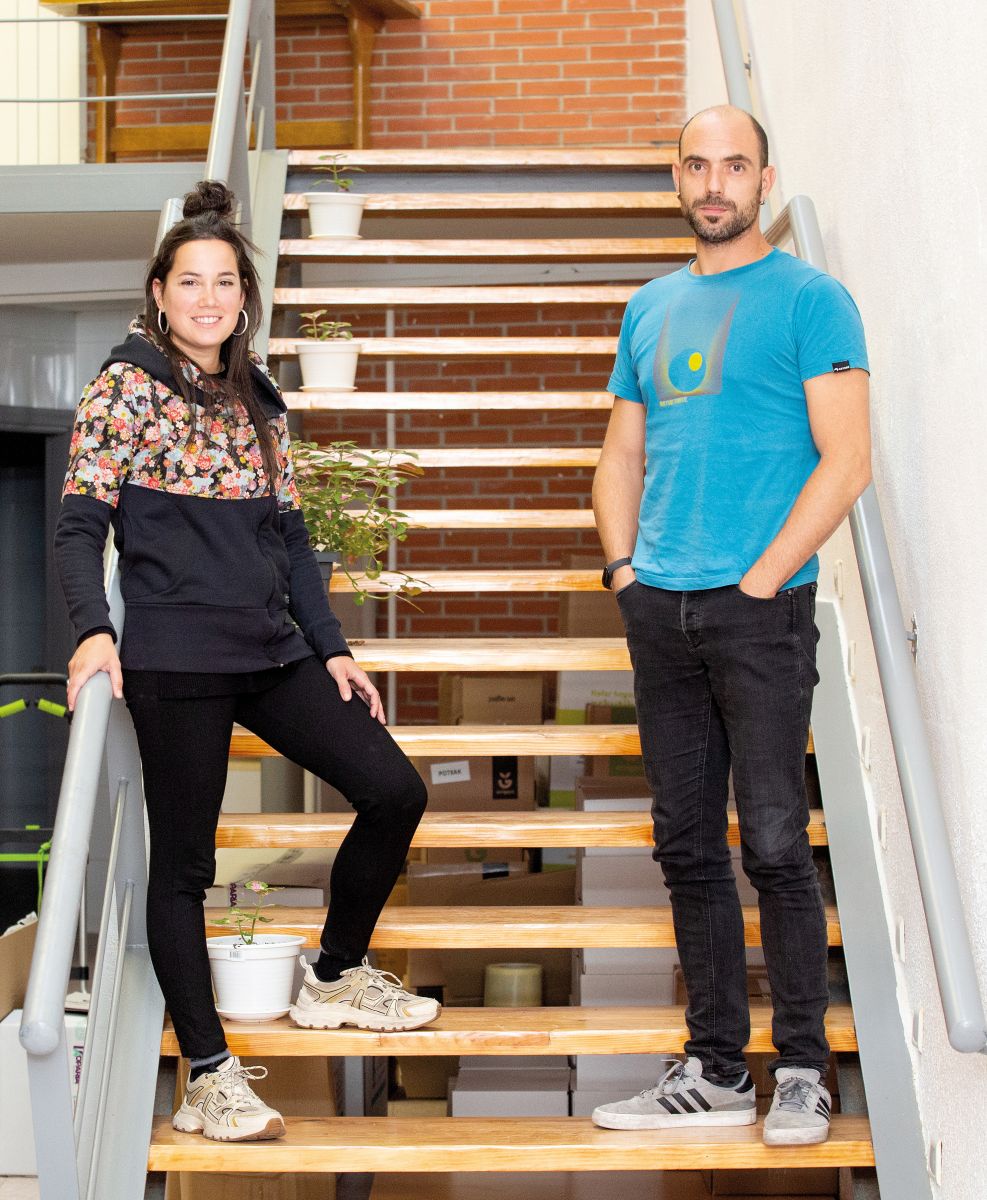
Labour force
The initiatives that emerged in the discriminated area of Navarra have several objectives. Errigora, for example, was created in 2013 to boost Euskera, among others, and to allocate 25% of the benefits obtained with baskets to the Basque industry:1.8 million euros have been distributed to AEK, Sortzen Elkartea and Ikastolen Elkartea. Sueskeak has determined how he works: "We want to unite citizens with a smile always before obstacles and with the goal of popular construction".
Blanca García, a colleague of the Appearing Party, reminds us that they had seen that it was okay to boost the knowledge of the Basque Country, but that it was a little short. That is why they created the Hearing to "give the word to citizenship" from Errigorri. Four years ago they met in the Ageraldia initiative and have since organized various activities: meetings, games, Euskera plans, the Basque sports club Union Tutera, etc. "When our adults leave those literacy camps, what options do they have to speak in Basque? They have no possibility. The appearance comes to answer that, how to use more the Basque, how to further promote the Basque, how to recover these spaces... What salsa gives the Basque in all areas of his life".
“We are increasingly understanding that Euskera is our right, beyond being our language”
They stress that it is now time to "join", following their motto, and that the new movement of recent years has made it clear that for the Basque country to be official in Navarre the land must be worked together. Sueske has reflected that many times every Basque culture is on its way, and that it is time to turn: "The initiatives existed and exist, but what the Queen or the Appearance have created is an awakening of illusion, to say that something can be done. And it was said about it: we can activate citizenship, but also why we don't turn back the story of zoning." So these initiatives emerged. Suescents recall that attempts have already been made to end zoning, but "not seriously". "Citizenship has been activated, one through the institutions, the other in the area of citizen activation, and the other through solidarity initiatives such as Nafarroa Oinez. Then to Errigora, then to the Appearance, and the different initiatives that emerge from it".
Iraia De la Torre also sees the momentum of the Basque country. "We are increasingly understanding that Euskera is our right, beyond being our language. And we understand that we must defend not only our language, but our right. In addition, we do not see changes in the Basque issue. We have the strength to organize ourselves."
Meetings to reflect
They say the road has only just begun, and they intend to share the steps that come in the Ager meetings. On 5 November, a date has been set in Peralta and they are excited because they expect to bring together many people from the area. There will be room for reflection, for sharing ideas. García clarifies that the citizens have to set the agenda of the Queen and the Appearance: "We invite citizens to come and say what their needs are." Garcia and Sueskune want there to be a time to add people and see how they are and what they have to do in the future: "We don't have to decide that, we have to decide people to people, because the needs of each are not the same."

Peralta is still eager to receive ideas and criticisms. Suescents point out that all realities must be taken into account. "The area is very large, from Caro to Cortes and from Sangüesa to Viana. The realities are very different, within a reality there are many realities. We want to join and see what unites us. What unites us in the Basque Country to make the same journey? ". They want the Basque to be the basis, but they want to work transversally: "Historical memory, identity, feminism... and other transformative values."
On 5 November it will be dedicated all day to Basque. At 10:10 the UPV/EHU study on the Basque community of Agerre will be presented and at 10:40 the conference "The harvest of the appearance" will take place. They will then meet in think tanks ending at 13:30. After eating together they will open a leisure space until night: Eyes Violeta, Pirritx, Porrotx eta Marimotots, the ball game, and the concerts of Tatxers, Skabidea, Odolkiak compensa and Neskatasuna. The organization hopes it will be a fruitful day.

Join to make a Navarra
In Tudela's demonstration, the protagonists were the citizens of the Ribera and the Center, accustoming the mayor to phrases like "Toquero, listen, Tudela euskaldun", but Sueske warns that the struggle of all Navarros must be to combat zoning. "It is clear that all Navarros must move if we want all Navarros to have the same rights."
The movement has started, and it's not so much. The Ager meetings will make it possible to measure the forces and the desire of the Basque people and foresee that it will be the starting point to follow the path. The members of the initiatives that have spoken to ARGIA are clear that the Basque country has countless fields to work, and that the struggle has to go from different angles. Sueskun states that each agent has its function: "It is different what Hordago can do, it is different what Appearance or Rota can do, all are essential. But ending zoning doesn't mean we recover the Basque." In other words, they envisage a long road. "Despite being official across the board, we have hundreds and hundreds of years ago in which the Basque Christ has been hurt. That has to change: customs, culture, many things. If there are administrative changes it will help a lot, but it will not mean the Basque Country."
"In order to euskaldunify the country we have to raise public awareness and help institutions"
Sueskune attaches importance to the work of both sides, citizens and institutions: "In order to euskaldunify the country we have to raise public awareness and help institutions." De la Torre is of the same opinion, because he believes that the modification of the law would mean that the citizens of a discriminated zone feel that the Basque is also their own: "The law provokes the vicious circle, because I feel that the Basque is not mine, I cannot learn Basque, therefore, I do not speak ... The feeling and the point of view towards Euskera must be changed, and the authorities must have a positive attitude towards it".
Sueskas has taken the institutions to heart: "We do not ask for anything less, but to give the Basque the importance given to Castilian, to recover what has been taken away from us".
More information: we have published along with this report many obstacles to education. See here the references to Nafarroa Oinez organized by the Ikastola Garces de los Fayos de Tafalla and to the requirement of model D by the parents of the Larraga public school.
Last Thursday the PSN and Navarra Suma rejected in the Parliament of Navarra the proposal of law to enter the mixed area of Mañeru. In addition to refusing, the PSN proved harsh. Although the City of Mañeru unanimously approved the inclusion in the mixed area, the law was not... [+]
On December 15, the "Basque Law" will be 36 years old. 36 years since the division of Nafarroa Garaia in three areas. 36 years since the division of our linguistic rights into three areas. Living in Basque as an option associated with a specific area.
Since then, we Basques have... [+]









